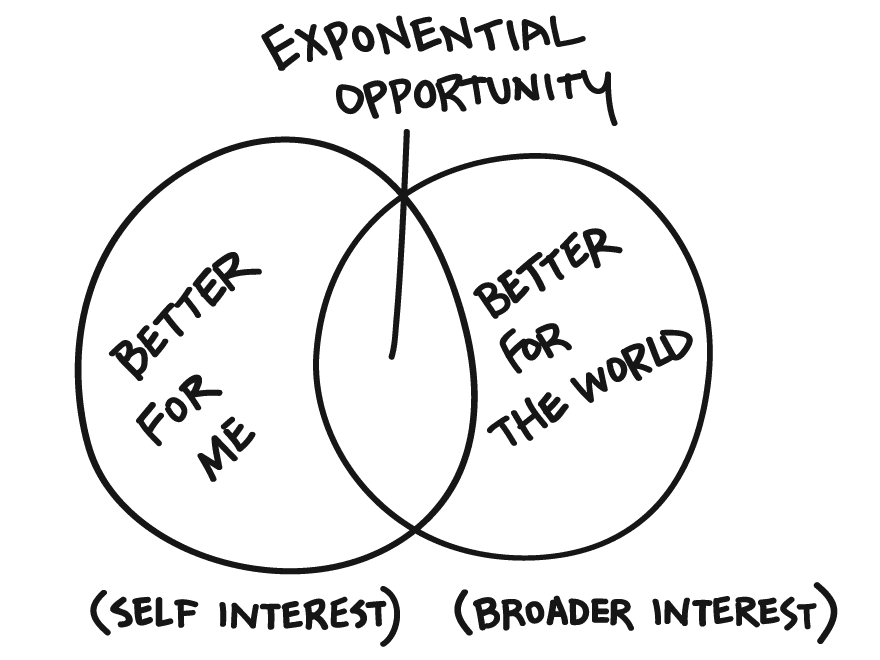“Not so fun fact: the buildings sector is responsible for nearly 40% of carbon dioxide emissions in the EU”. Says Yvette Watson, the co-founder of PHI Factory. Her goal is to fully integrate the circular economy mindset into facility management. In this way, create a more sustainable world for tomorrow. PHI Factory guides organisations in initiating and implementing circular business operations to create balance in the usage of resources. The fundamental goals to implement circular business operations are to reduce waste, create economic value and reduce CO2 emissions by using resources more efficiently.
Growing and developing in facility management
Following her graduation from the Haagse Hogeschool, Yvette started working as a facilities professional. During this time, she discovered her interest in sustainability and making improvements in organisations to be more eco-friendly. After completing some projects at her job, she learned about the concept of the circular economy. Coming across new business models where you can increase bottom line profits while still being sustainable. She soon realised it was all about preserving the relationship between the producer and the user. Then, she changed companies and became the head of the facilities department at a corporate company. In this position, she had more freedom to make decisions and encourage sustainable use of assets within the company. Also, Yvette was able to gain a great deal of experience in her leadership role, learning how a positive difference can really be made in facility management.
Her experiences encouraged Yvette to start her own company, together with her business partner. Both help organisations to bring the circular economy into facility management. PHI Factory offers assistance in different areas. Yvette’s organisation works towards helping employees by making them more aware of their choices. While encouraging them to make more sustainable decisions in their daily lives. Through this, the whole organisation is activated to seek sustainability in their own lives, both personal and professional, as employees in all areas of the organisation can make a difference in their usage of resources.
Circularity in Facility Management
The circular economy is likely to affect facility management in the future in three distinct ways. First, a transition to a circular economy would likely put the facility manager in the driver’s seat. Forcing them to be more strategic and act on needs. Second, in a future with circular facility management, organisations will likely move towards being more value-driven rather than cost-driven. Managers should be thinking about the impact their decisions will have, keeping in mind the impact they are creating. Rather than the effect of cleaning or fixing the imbalance of resource usage. Third, the facility manager will be the resource manager of the future, all raw materials, office supplies, catering equipment and more coming into the facility will leave just as fast through your waste contract. These changes lead to different tasks for the facility manager but will result in improved processes, profiting the organisation and environment.
Our Workplace Asset Inventory enables facility managers to do just that. A workplace asset inventory provides you with a workable, well-organised list of inventory elements that are currently present in your buildings and contains a quality check per element. A Workplace Asset Inventory is invaluable when formulating a long-term investment plan or implementing a circular strategy in the workplace environment. The data that gets collected during the workplace asset inventory is stored in any desired format and layout. You can learn more about our Workplace Asset Inventory solution. Or read our case study on how the Deltion College used an inventory to grow sustainably. Our approach to executing the workplace asset inventory is thorough, contains quality checks, and is adaptable to specific preferences and/or wishes from your side.
What will circular facility management do for me?
In the end, circular facility management will lead to increased acceptance and acknowledgement of sustainable strategies. It will encourage people to change their behaviour in their day to day life. As well, it contributes to increasing productivity and happiness in the workplace. Additionally, raised consideration for circularity in the workplace will influence and encourage more people to make sustainable decisions in their own lives. Which, ultimately, leads to a cumulative effect of more eco-friendly choices. As Yvette said it best, experience creates movement… the movement to create a more sustainable world of tomorrow. Initiate the implementation of a circular economy in your organisation today with a Workplace Asset Inventory and make a long-term investment plan to reuse, reduce and recycle!
Special thanks to Yvette Watson from PHI Factory for sharing her thoughts on the circular economy within the facility management industry!




